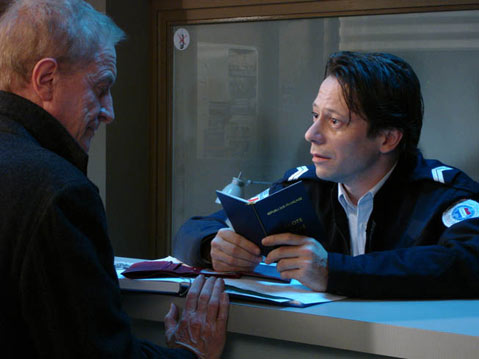Wild Grass
Sabine Azéma, André Dussollier, and Anne Consigny star in a film written by Alex Reval and Laurent Herbiet, based on the novel by Christian Gailly, and directed by Alain Resnais.

Legendary and semi-infamous French director Alain Resnais has made a healthy and diverse pile of films in his 88 years, but his name is usually attached to two titles from early in his career: Hiroshima mon amour, a lyrical dream of a film about love in the age of the A-bomb, and his alternately beloved and loathed experimental cinema classic Last Year at Marienbad, a lyrical dream about, well, lyrical dreaming.
Fast-forward a few decades to his latest, Wild Grass, and the going is much more colorful and playful. Whether Resnais is mellowing in his old age is open to question, but with this delicious oddity, the director has created one of the season’s brightest and strangest art-house numbers. Here, he deftly blends experimentalism with teasing coats of vivid color, a sometimes ridiculously melodramatic narrative, and dodgy filmic maneuvers, which could be seen as pretentious—or mock-pretentious, in a self-referential sort of way.
Here, Resnias seems less concerned with the characters and the story than in the manner of telling, and the cinematic language is there for the twisting and reinventing. It’s not incidental that a catalyst scene takes place around a Parisian cinema screening the 1954 Korean War film The Bridges at Toko-Ri: Resnais is ever-aware of the cinematic manipulations and clichés he’s toying with.
Recurring leitmotifs and references to trivial events and objects are inserted into the film all along the way, a dream-meets-memory device reminiscent of Marienbad’s minimalist hypnotic repetitions. Along the narrative trail—a deceptively simple yarn about a neurotic, mid-life man obsessed with a woman whose stolen wallet he finds—we are peppered with fleeting shots of a stolen purse, a fate-goosing found wallet, a fatefully unzipped fly, and, yes, echoic shots of the wild grasses which grow outside of humanity’s control.
By film’s end, Resnais has brilliantly managed to supply a climactic wrap-up while making further quizzical trips down his own artistic rabbit hole. We can recognize his internalized paradox, as a romantic who also can’t resist a false ending or a denouement detour to whereabouts unknown. In short, Wild Grass is wild, brainy, experimental, and kitschy fun.



